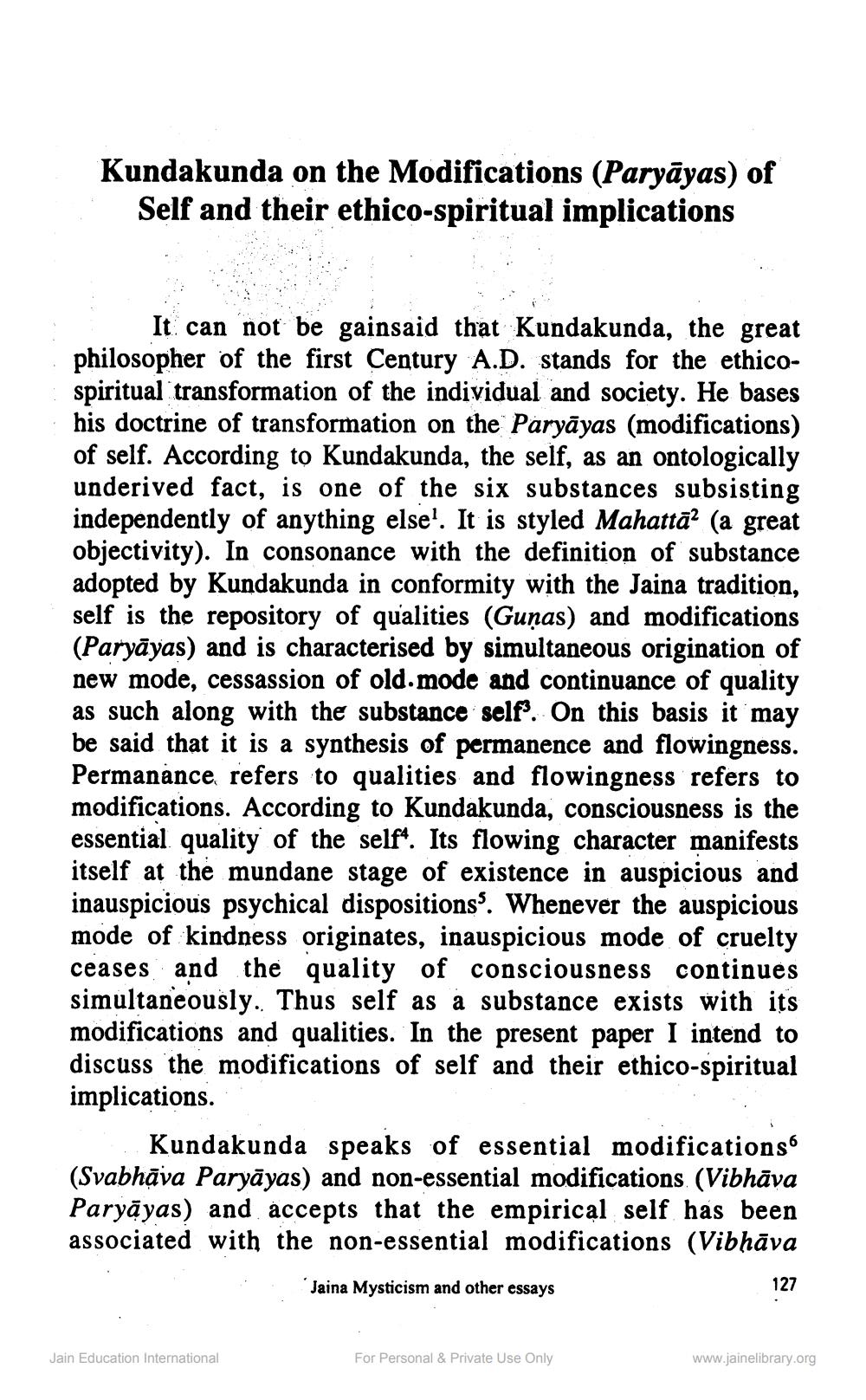________________
Kundakunda on the Modifications (Paryāyas) of
Self and their ethico-spiritual implications
It can not be gainsaid that Kundakunda, the great philosopher of the first Century A.D. stands for the ethicospiritual transformation of the individual and society. He bases his doctrine of transformation on the Paryāyas (modifications) of self. According to Kundakunda, the self, as an ontologically underived fact, is one of the six substances subsisting independently of anything else!. It is styled Mahattā? (a great objectivity). In consonance with the definition of substance adopted by Kundakunda in conformity with the Jaina tradition, self is the repository of qualities (Guņas) and modifications (Paryāyas) and is characterised by simultaneous origination of new mode, cessassion of old.mode and continuance of quality as such along with the substance self. On this basis it may be said that it is a synthesis of permanence and flowingness. Permanance, refers to qualities and flowingness refers to modifications. According to Kundakunda, consciousness is the essential quality of the self. Its flowing character manifests itself at the mundane stage of existence in auspicious and inauspicious psychical dispositions'. Whenever the auspicious mode of kindness originates, inauspicious mode of cruelty ceases and the quality of consciousness continues simultaneously. Thus self as a substance exists with its modifications and qualities. In the present paper I intend to discuss the modifications of self and their ethico-spiritual implications.
Kundakunda speaks of essential modifications (Svabhāva Paryāyas) and non-essential modifications (Vibhāva Paryāyas) and accepts that the empirical self has been associated with the non-essential modifications (Vibhāva
Jaina Mysticism and other essays
127
Jain Education International
For Personal & Private Use Only
www.jainelibrary.org




